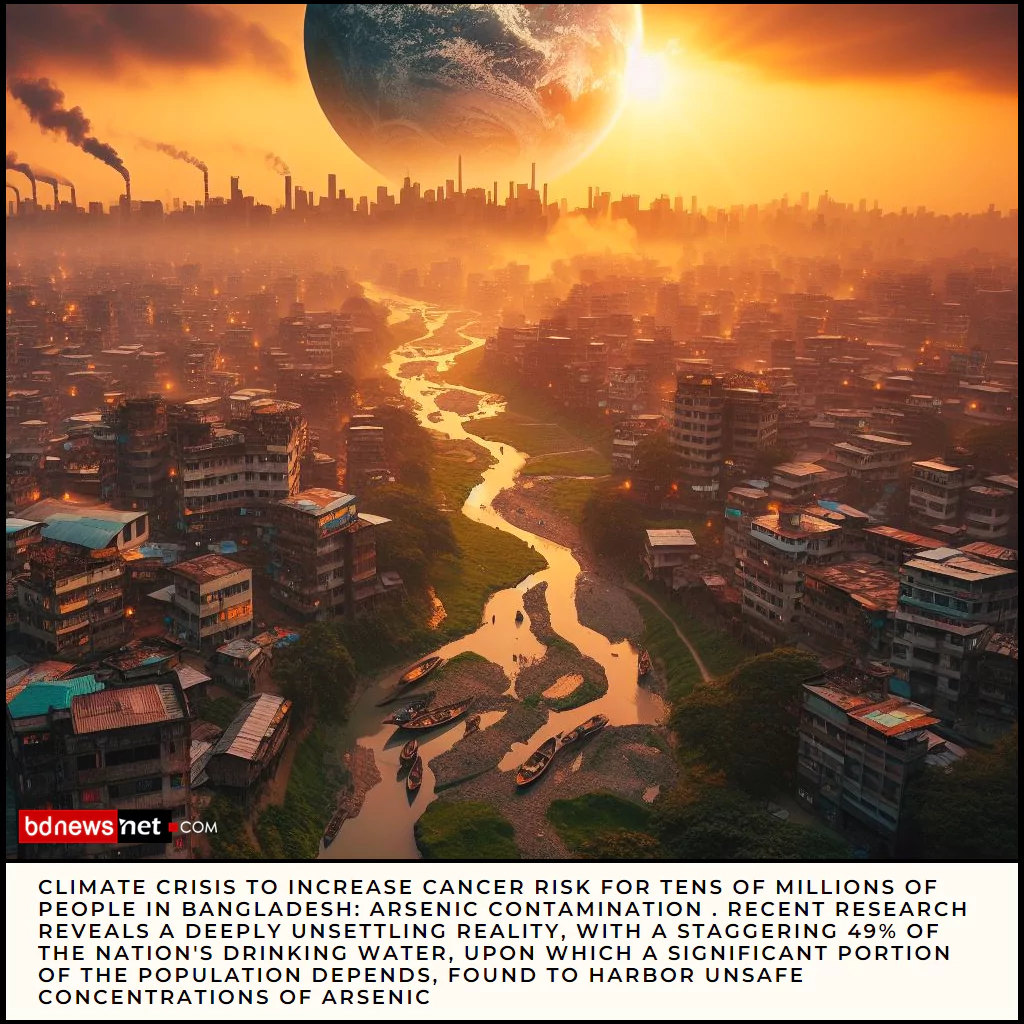Widespread Arsenic Contamination Threatens Public Health in Bangladesh
The pervasive arsenic contamination crisis in Bangladesh has escalated to alarming proportions, presenting a grave threat to public health. Recent research reveals a deeply unsettling reality, with a staggering 49% of the nation’s drinking water, upon which a significant portion of the population depends, found to harbor unsafe concentrations of arsenic. This distressing statistic serves as a stark reminder of the urgent and widespread nature of the problem. The elevation in arsenic levels is intricately connected to heightened sea levels and intensified seasonal flooding, creating a concerning synergy that results in the release of arsenic from sediments when saltwater intermingles with freshwate
A recent study reveals a dire situation in Bangladesh, with nearly half of the country’s drinking water containing unsafe levels of arsenic, a known carcinogen. The alarming findings, affecting an overwhelming majority of the population, underscore a looming public health crisis in a nation already grappling with frequent flooding and climate-related challenges.
In 49% of the tested water samples, arsenic concentrations surpassed the World Health Organisation’s safe limit of 10 micrograms per litre. The rise in arsenic levels is directly linked to elevated sea levels and intensified seasonal flooding, which promote the release of arsenic from sediments when saltwater mixes with freshwater.
Bangladesh, highly susceptible to climate change impacts, witnessed significant flooding in 2018 during Cyclone Amphan, with an average of 21% of the country being flooded annually due to intensified monsoons. The study suggests that the same processes causing arsenic contamination in Bangladesh may pose a similar risk to West Bengal.
Dr. Frisby, a researcher involved in the study, raised concerns about outdated drinking water standards for arsenic in both India and Bangladesh. Prolonged exposure to arsenic can lead to severe health issues, including cancer and vascular diseases.
This revelation adds to Bangladesh’s existing water challenges, as pollution from pesticides, especially in fishing areas, contributes to water shortages. The country’s vulnerability to climate change, high population density, and dependence on flood-prone land further compound the risk of waterborne diseases. Urgent attention and updated water quality standards are essential to address this emerging public health emergency.



